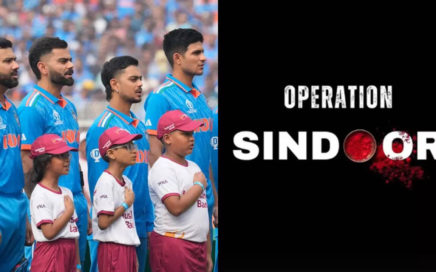
Have We Forgotten Pahalgam Mass Genocide?
India still carries the painful memory of the Pahalgam massacre, where innocent yatris were killed in cold blood by Pakistan-backed militants. Every few years, the wounds of terror attacks—be it Uri, Pulwama, Pathankot, or the Mumbai 26/11 carnage—are reopened. At every juncture, the Indian state has vowed to stay firm, and nationalist voices have demanded a total boycott of Pakistan, not only diplomatically but also on sporting grounds.
Yet today, while Operation Sindoor is still declared to be “ongoing,” the very same government that once projected uncompromising nationalism is permitting an India-Pakistan cricket match.
The Government’s Contradiction: Then vs Now
When opposition parties were in power, BJP and its affiliates strongly opposed any sporting ties with Pakistan, citing Rashtrawad (nationalism). Matches were boycotted, tours canceled, and players criticized.
- After the 2008 Mumbai attacks, bilateral cricket ties with Pakistan were suspended for years.
- In 2019, post-Pulwama attack, several BJP leaders demanded that India boycott the World Cup match against Pakistan in Manchester. Campaigns and TV debates were dominated by the cry: “No cricket with Pakistan until terror ends.”
- Even Indian broadcasters and cinema halls were pressured not to air Pakistani content.
But in 2025, with BJP in full power and projecting itself as the sole custodian of nationalism, the question arises: why the U-turn?
Is It ICC and BCCI Pressure? Or Political Compromise?
The BCCI and ICC, often accused of being heavily influenced by political power, operate under massive financial stakes. India-Pakistan matches are among the most profitable sporting events globally. Billions of dollars ride on TV rights, sponsorships, and advertisements. Is the government compromising its nationalist stance for cricketing economics?
If another party were in power and allowed the same match, BJP and its ecosystem would likely brand them as “anti-national” or “compromised.” Where has that nationalism gone now?
The Double Standard of ‘Rashtrawad’
The contradiction is glaring. If cricket with Pakistan is acceptable now, then what was all the outrage in the past for? Was it genuine patriotism or political posturing? The public is left confused:
- If I, as a citizen, watch the India-Pakistan match—will I be branded desh drohi (traitor)?
- If restaurants, clubs, or hotels screen the match live—will they face mob attacks in the name of nationalism, as has happened in the past?
- If nationalism is the yardstick, does it change based on who sits in power?
The Bigger Question: What Has Changed?
The government must answer:
- Has terrorism from Pakistan stopped?
- Has Operation Sindoor been called off quietly?
- Or has cricket become more important than the lives lost in terror attacks?
Because the people of India remember. They remember the promises, the slogans, and the chest-thumping speeches of “no compromise on terror.” If that stand has shifted for money, power, or politics, then the biggest betrayal is not against Pakistan—but against the trust of Indian citizens.
Timeline: When India Stopped Playing Cricket with Pakistan
2002 – Post-Parliament Attack
- After the 2001 Indian Parliament attack, bilateral cricket ties were suspended.
- India refused to tour Pakistan for several years.
2008 – 26/11 Mumbai Terror Attacks
- India immediately canceled the scheduled Pakistan tour.
- No bilateral series took place for years.
- Pakistani players were barred from the IPL.
2013 – Brief Revival, Short-lived
- India hosted a short limited-overs series against Pakistan.
- The move was heavily criticized by BJP and nationalist groups, calling it “insult to martyrs.”
2016 – Uri Attack
- Rising cross-border terror again froze bilateral talks and sports ties.
- Indian cricket authorities maintained a “no-play” policy outside ICC tournaments.
2019 – Pulwama Attack
- A strong demand to boycott Pakistan in the ICC World Cup emerged.
- Politicians, celebrities, and nationalist groups demanded India should forfeit the match.
- Stadium security was tightened, and sponsors faced public pressure.
2025 – India vs Pakistan on September 14
- Despite Operation Sindoor still being declared active and no formal normalization of ties, India is set to play Pakistan again.
- Raises serious questions about whether nationalism has been sidelined for financial and political interests.














